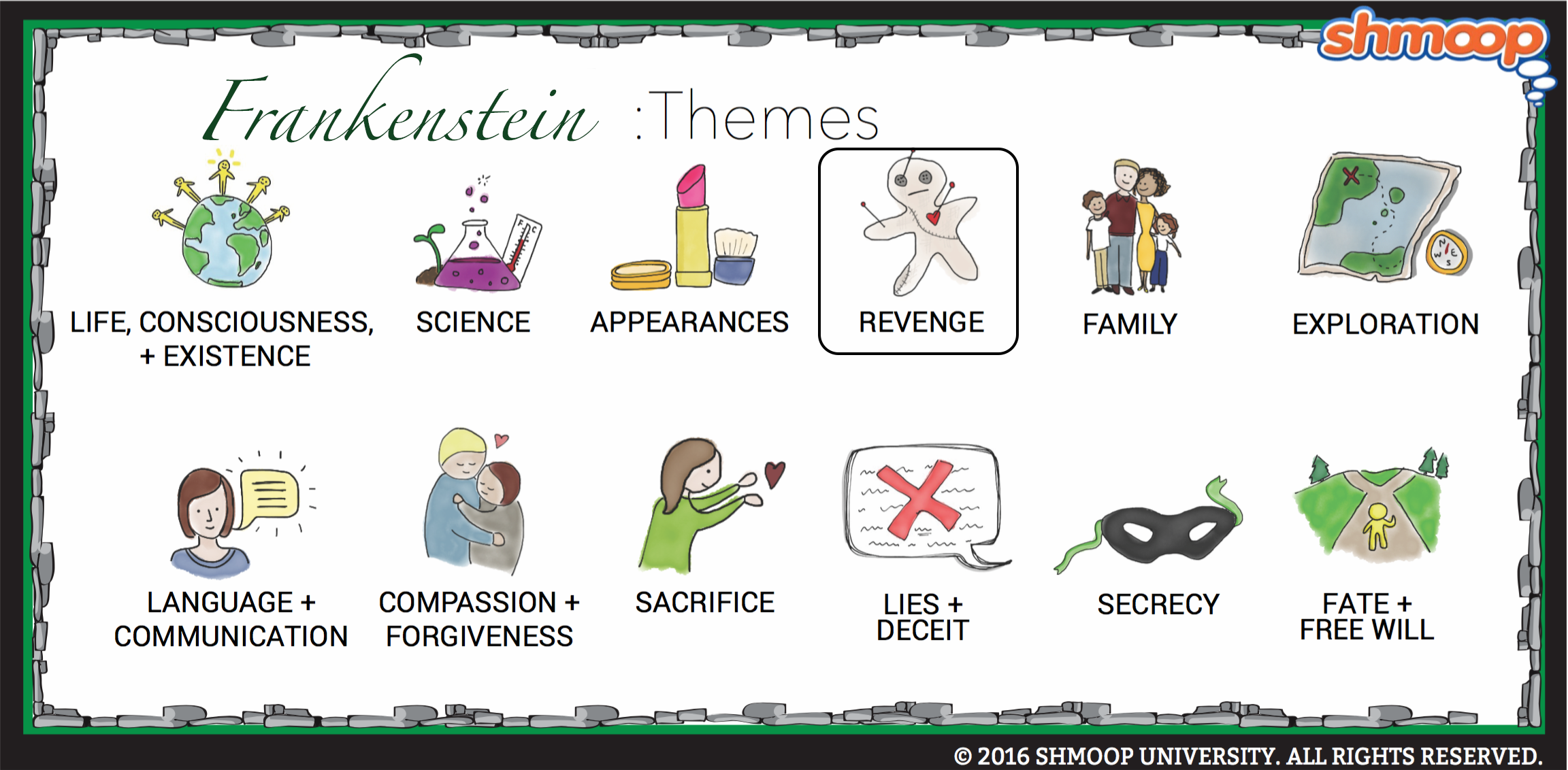 (Click the themes infographic to download.)
(Click the themes infographic to download.)
Vengeance is sweet. Revenge is a dish best served cold. The best revenge is a life well lived. Revenge—well, you get the point: people have a lot of things to say about revenge. In fact, it's a human emotion as strong and passionate as any other, like, say, love. Or friendship. In Frankenstein, revenge has an emotional resonance way stronger than Victor's half-hearted protests that he really does love Elizabeth, honestly. (Think about it: on his wedding night, who does he spend most of his time thinking about? Uh-huh.) The monster may think he has no connection to the world, but revenge gives him a continued link to Victor. It may be distorted, but it's still a way of forming human bonds.
Questions About Revenge
- In Frankenstein, what's the relationship between revenge and tragedy?
- Who starts the revenge cycle, the monster, or Victor? Does it matter who started it? Who finishes it?
- How does revenge give both the monster and Victor a purpose in life?
- Near his death, Victor asks Walton to continue the quest for revenge against the monster. Does Walton honor this request in any way? Why or why not?
Chew on This
Although revenge forms a very destructive type of bond between the monster and Victor, it ultimately becomes their shared link to humanity and gives them a reason to live.
Victor's desire to avenge William's death ultimately brings about the deaths of Henry, Elizabeth, and his father. Victor is therefore morally responsible for these tragic events.